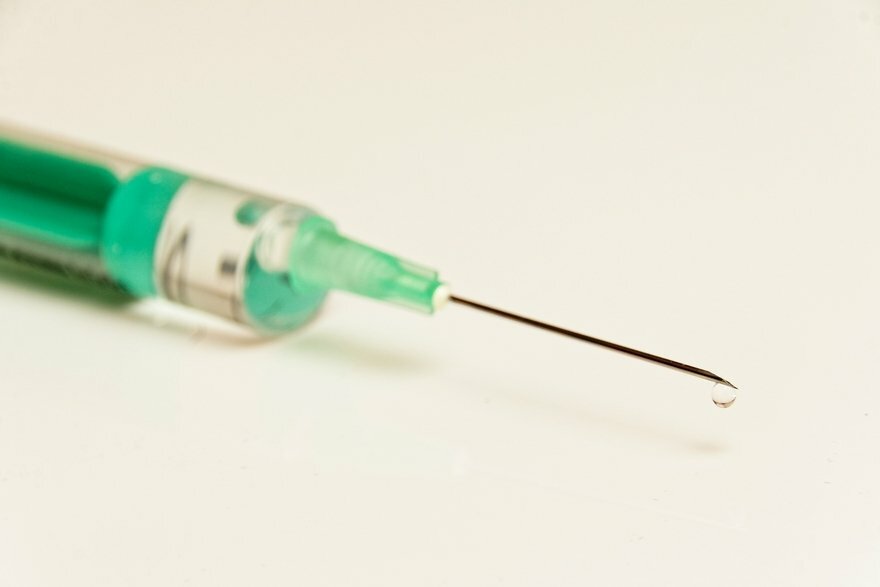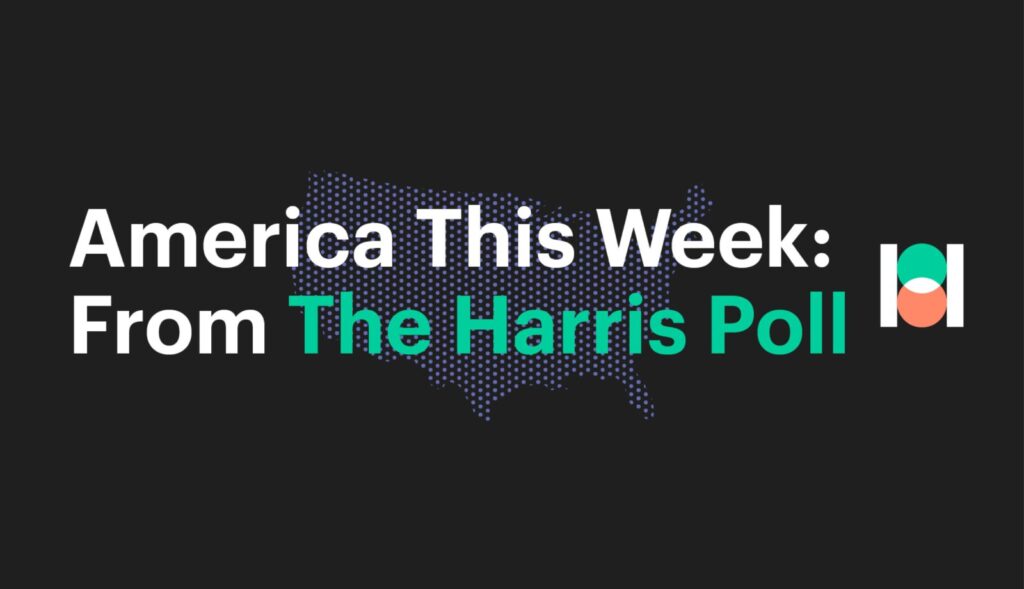Brief • 3 min Read

The latest survey from Yahoo Finance and The Harris Poll explores how Americans feel about a coronavirus vaccine. Overall, Americans are split on whether a vaccine will truly end the COVID-19 crisis.
Fifty-four percent of Americans think a COVID-19 vaccine that is available to everyone will end the crisis. Thirty percent of Americans believe that the existence of a vaccine will be the best indication that the COVID-19 crisis is over, and another 23% believe the best indication the crisis has ended is when the Centers for Disease Control and Prevention (CDC) says so.
Despite the politicization of the COVID-19 vaccine this election season, most Americans trust the Food and Drug Administration (FDA) to ensure a safe vaccine. Nevertheless, many are also concerned about the speed of the approval process.
Sixty-eight percent of Americans say they trust the FDA to make sure a COVID-19 vaccine is safe. Still, 40% of Americans feel the speed of the current process to get a COVID-19 vaccine approved is moving too fast. Moreover, assuming multiple vaccines are made available, 77% of Americans say they will do research on their own to decide which COVID-19 vaccine to take.
The effects of COVID have gone beyond just staying indoors. For Americans more affected by the pandemic – namely lower income households, women, and ethnic minorities – COVID has influenced their outlook on the future. For these Americans, the idea that a vaccine will resolve everything is less believable.
Wealthier and more educated households are more likely to think a widely available COVID-19 vaccine will end the crisis compared to their less wealthy and less educated counterparts.
- Sixty-six percent of those with an annual household income of $100K+ think a COVID-19 vaccine available to everyone will end the crisis compared to 43% of those with an annual household income less than $50K.
- Fifty-eight percent of college grads think a COVID-19 vaccine available to everyone will end the crisis compared to 47% of those with a high school education or less.
Compared to men, women are more skeptical that a vaccine will resolve the crisis. Their skepticism extends to the institutions and the potential guidelines that will be used to end the pandemic.
- Only 26% of women believe that the existence of a vaccine will be the best indication that the COVID-19 crisis is over compared to 34% of men, and only 45% of women think that a COVID-19 vaccine that is available to everyone will end the crisis compared to 62% of men.
- Fewer women (62%) than men (74%) trust the FDA to make sure a COVID-19 vaccine is safe. Compared to 32% of men, nearly half (47%) of all women feel the speed of the of the current process to get a COVID-19 vaccine approved is too fast.
- Compared to 64% of men, only 55% of women agree workplaces should mandate all employees be vaccinated for COVID-19 when a vaccine becomes available. Additionally, compared to 66% of men, only 56% of women agree that schools should mandate all students be vaccinated for COVID-19 when a vaccine becomes available.
Americans of color, who generally have been more negatively affected by the pandemic than White Americans, also show greater skepticism towards the benefits of a vaccine and are concerned about access once a vaccine becomes available.
- Only 40% of African Americans think that a COVID-19 vaccine that is available to everyone will end the crisis compared to 53% of White Americans.
- 61% of African Americans agree that their family members worry about getting access to the vaccine when it becomes available compared to 46% of White Americans.
- This also holds directionally true for Hispanic Americans at 63%. *
- When asked about the speed of the FDA’s current process to get a COVID-19 vaccine approved, 46% of White Americans said they feel the process is too fast compared to 34% of African Americans. In fact, 37% of African Americans feel the process is moving too slow compared to only 17% of White Americans.
- These tendencies were also directionally true for Hispanic Americans (29% too fast, 33% too slow). *
- Compared to White Americans, African Americans said nearly twice as often that certain groups – some of which have higher representation within the African American community – should have the highest priority to get a vaccine when it becomes available. Such groups included delivery people (19% of White Americans vs. 30% of African Americans), the homeless (19% WA vs. 36% AA), those in prison (18% WA vs. 38% AA), school-aged children (ages 5-17) (27% WA vs. 40% AA), and college students (22% WA vs. 35% AA).
- Some of these tendencies were also statistically significant for Hispanic Americans (e.g., delivery people, the homeless). *
When thinking about what life will be like after a vaccine is available, Americans are also divided on whether they will use the vaccine as well as their expectations for how public spaces should enforce healthy environments.
Getting a vaccine
Sixty-three percent of Americans agree that they feel more concerned about receiving a COVID-19 vaccine than they do about other vaccines, such as those for the flu, measles, and chickenpox.
Most Americans think healthcare workers (63%), adults over 65 (60%), first responders like firefighters and law enforcement (52%), and those with pre-existing or underlying conditions (52%) should have the highest priority to get a COVID-19 vaccine when it becomes available.
Public spaces in a post-pandemic world
Fifty-nine percent of Americans agree that workplaces should mandate all employees be vaccinated for COVID-19 when a vaccine becomes available. 61% of Americans agree that schools should mandate all students be vaccinated for COVID-19 when a vaccine becomes available.
Older Americans feel more strongly about this than their younger counterparts. Seventy-two percent of Americans aged 65+ agree that workplaces should mandate employee vaccination compared to 59% of those aged 18-34, 52% of those 35-54, and 60% of those 55-64. Additionally, 70% of Americans aged 65+ agree that schools should mandate student vaccinations compared to 57% of those aged 18-34, 58% of those 35-44, 56% of those 45-54, and 66% of those 55-64.
Returning to work
With a vaccine available, 30% of remote workers who used public or shared transportation to commute before the pandemic would be willing to return to their regular commute before the end of this year. 82% of these commuters would feel comfortable returning to their regular commute in 2021, and 92% by 2022 or sooner.
Even without a vaccine, most remote workers that commuted using public or shared transportation before the pandemic would feel comfortable restarting their regular commute within the next two years (31% by December 2020, 71% by 2021 or sooner, and 84% by 2022 or sooner).
Methodology
This survey was conducted online within the United States by The Harris Poll on behalf of Yahoo Finance from October 16 – October 19, 2020 among 1,046 U.S. adults ages 18 and older. This online survey is not based on a probability sample and therefore no estimate of theoretical sampling error can be calculated. Figures for age, sex, race/ethnicity, education, region and household income were weighted where necessary to bring them into line with their actual proportions in the population. Propensity score weighting was used to adjust for respondents’ propensity to be online.
*While data was still statistically significant for Hispanic Americans, given the group’s raw sample size was less than 100 respondents (N=94), Hispanic Americans’ responses are reported as directionally accurate/true to comply with The Harris Poll’s public release guidelines.
For more information on methodology, please contact Dami Rosanwo.
Subscribe for more Insights
Subscribe to our newsletter for the latest trends in business, politics, culture, and more.
Download the Data
Get the full data tabs for this survey conducted online within the United States by The Harris Poll on behalf of Yahoo Finance between October 16 – October 19, 2020 among 1,046 U.S. adults ages 18 and older.
Download
Subscribe for more Insights
Subscribe to our newsletter for the latest trends in business, politics, culture, and more.
Download the Data
Get the full data tabs for this survey conducted online within the United States by The Harris Poll on behalf of Yahoo Finance between October 16 – October 19, 2020 among 1,046 U.S. adults ages 18 and older.
DownloadRelated Content








